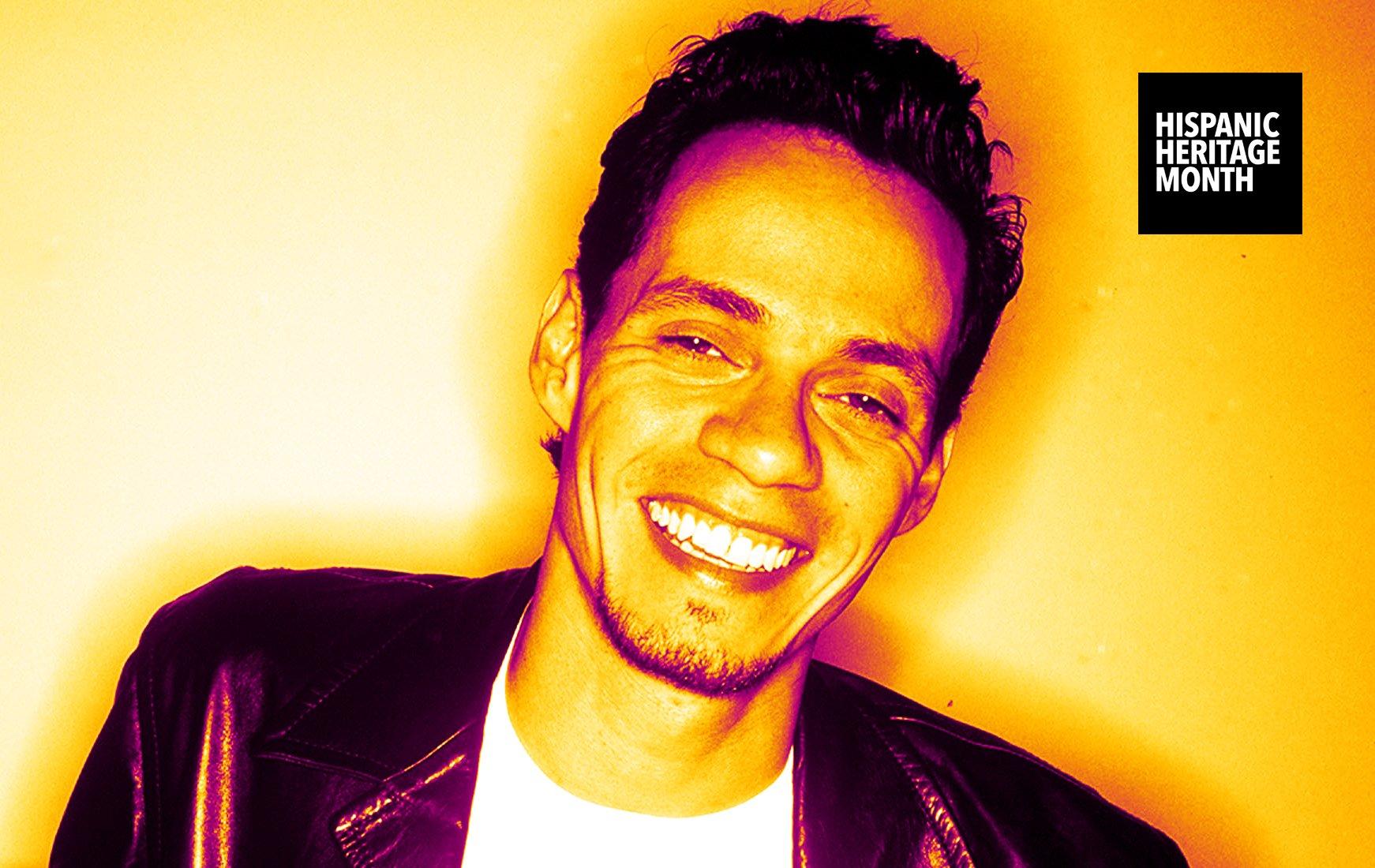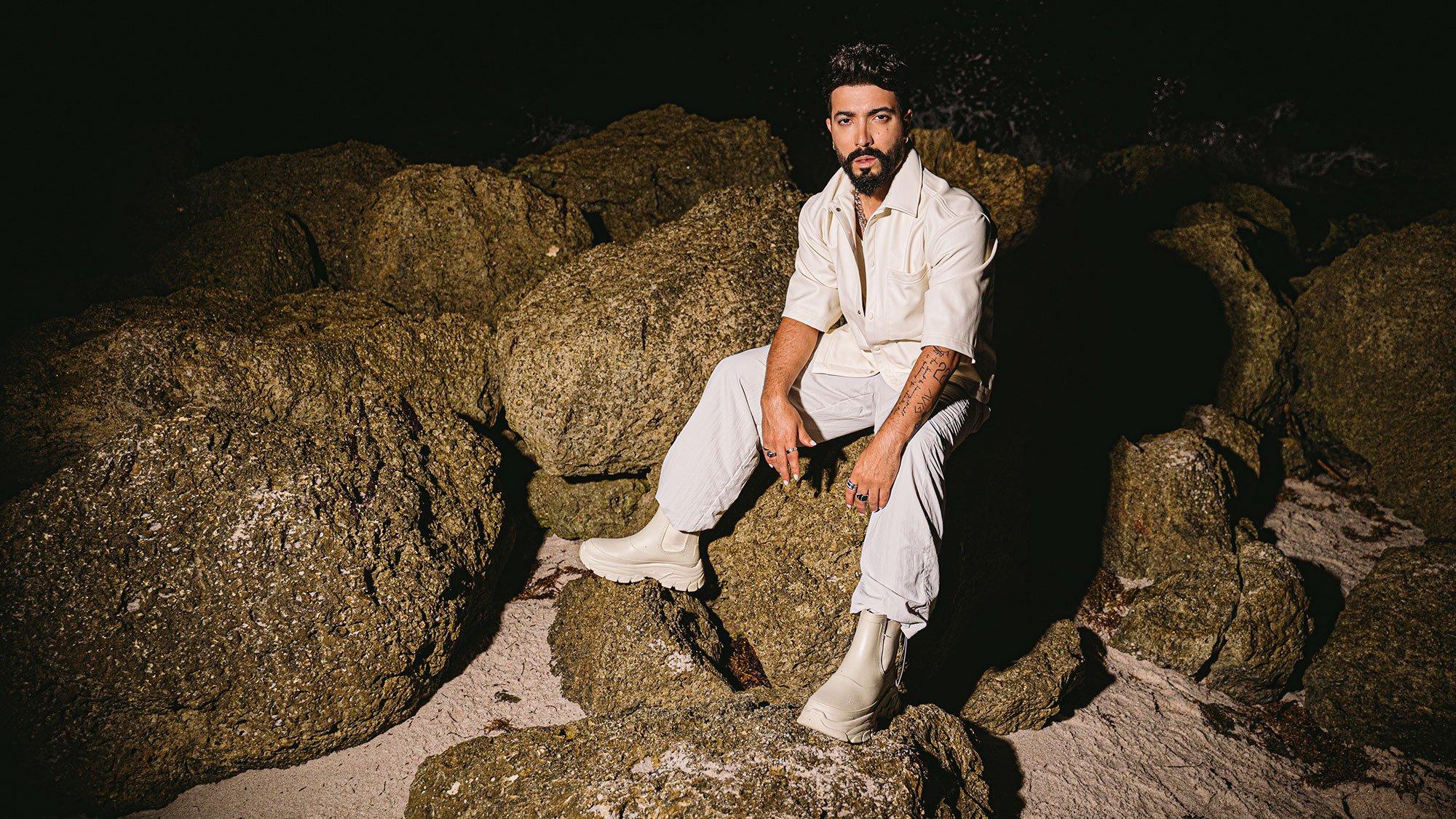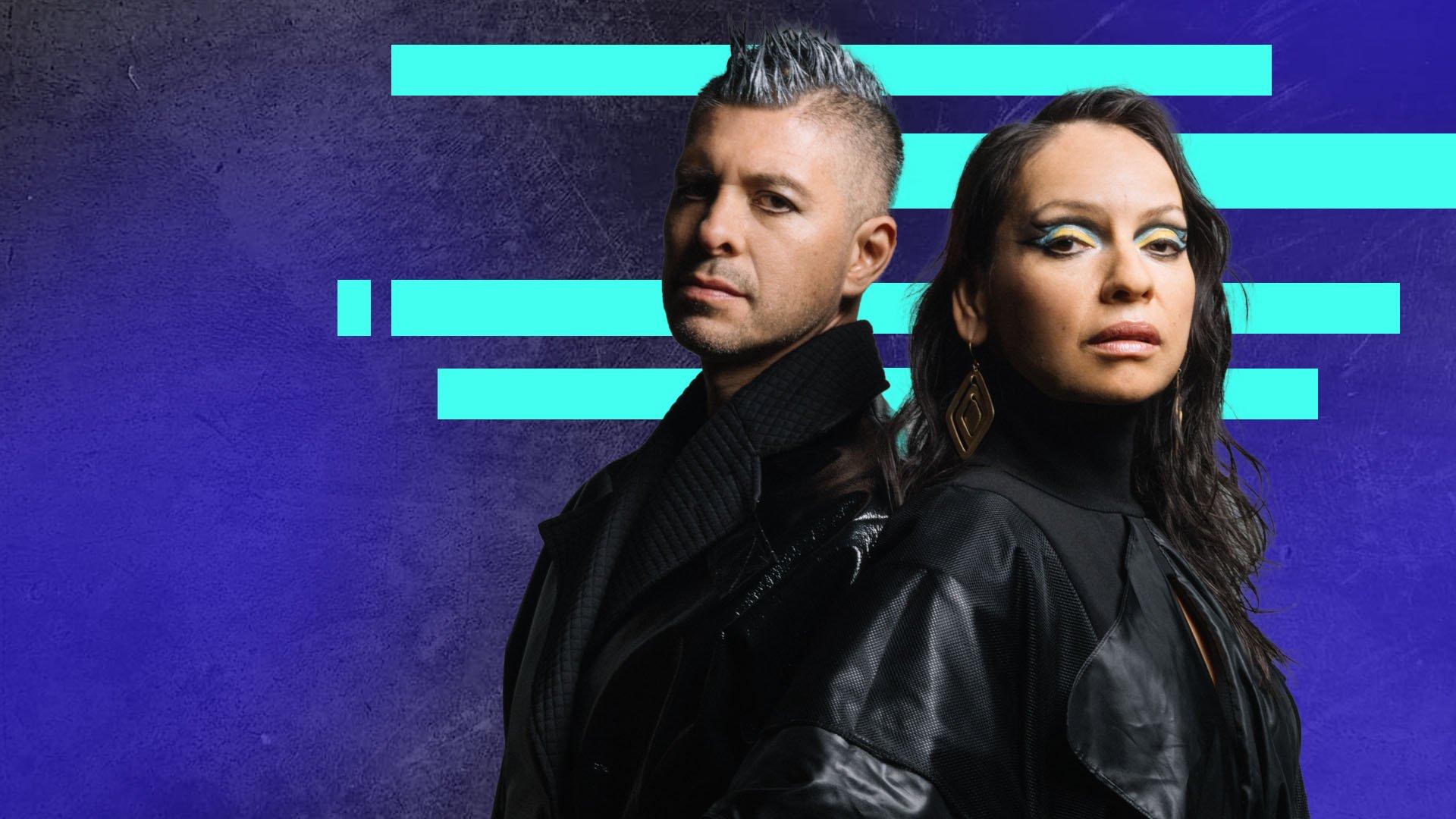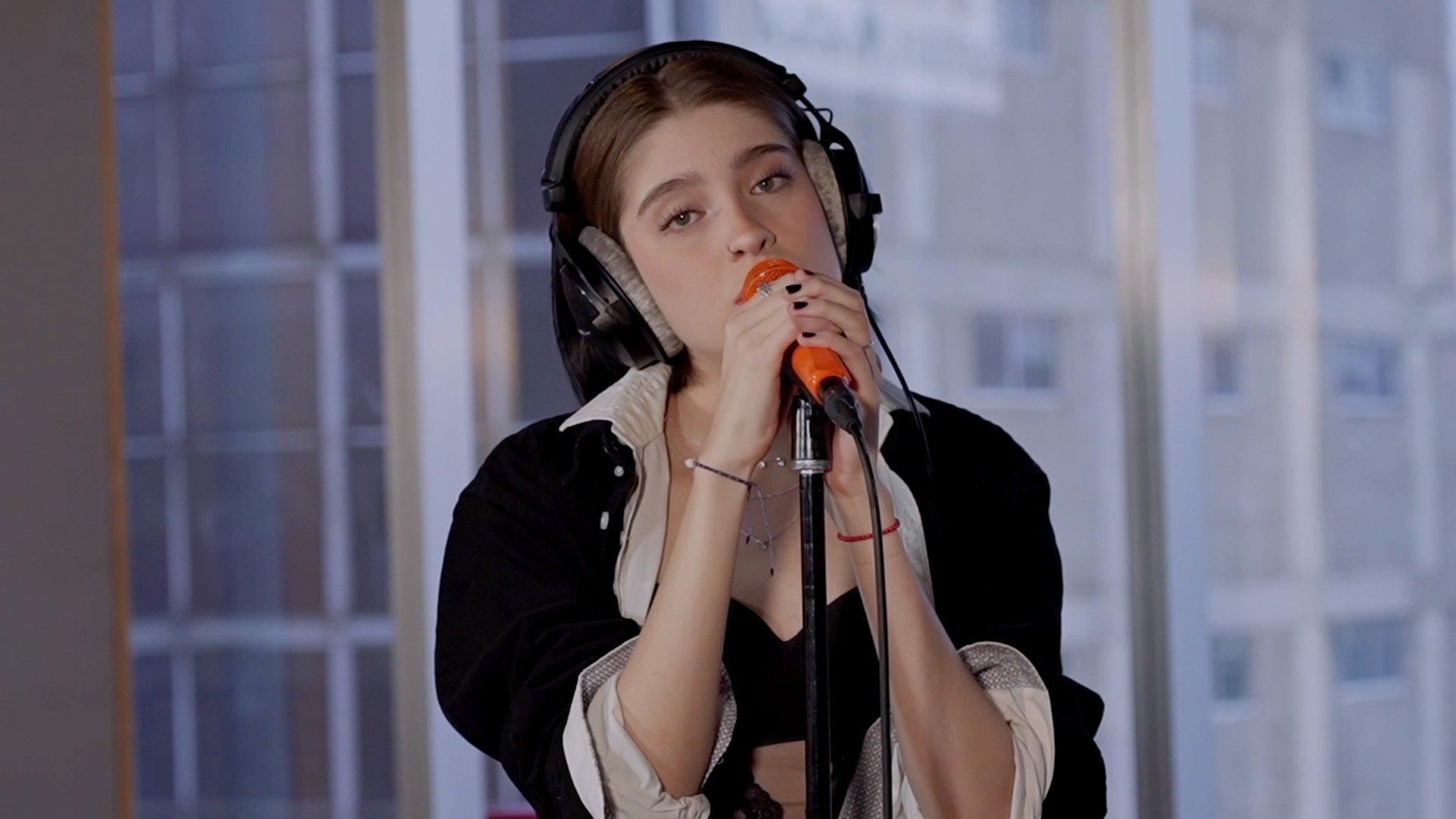Photo: Todd Plitt/Hulton Archive

Marc Anthony
news
Remember When? Marc Anthony's "I Need To Know" Nets Latin GRAMMY
Singer/songwriter takes home the first Latin GRAMMY ever awarded for Song Of The Year
Thanks to the crossover popularity of Latin artists such as Ricky Martin, Enrique Iglesias and Shakira in the late '90s, salsa master Marc Anthony was soon to join the Latin hot flash with his first English crossover album, which was self-titled.
The result of Marc Anthony was not only his first Billboard Hot 100 Top 5 hit, "I Need To Know," but it also landed the singer his first-ever Latin GRAMMY Award, and the distinction of earning the very first Latin GRAMMY for Song Of The Year in 2000 for the Spanish version of the catchy tune, "Dímelo."
<iframe width="560" height="315" src="https://www.youtube.com/embed/fLVzw9wVd9o" frameborder="0" allowfullscreen></iframe>
Anthony has gone on to win an additional four Latin GRAMMYs and two GRAMMY Awards. In 2016 he was honored as the Latin Recording Academy Person of the Year for his outstanding achievements as an artist and for his philanthropic work.

Photo: Juan Hernandez courtesy Sony Music Latin
interview
Best Tropical Latin Album Nominee Luis Figueroa On Charting A New Path For Salsa & The Power Of Puerto Rico
"I realized that I wanted to partake in the evolution and revolution of this traditional genre," Figueroa says. At the 2024 GRAMMYs, his urbano-meets-salsa EP, 'Voy A Ti,' is up against works by Carlos Vives, Rubén Blades and Grupo Niche.
Back in 2021, a song released on Marc Anthony’s record label caused a stir among salsa fans.
It was a revamped version of the minor 1993 hit "Hasta el Sol de Hoy," and the track introduced singer/songwriter Luis Figueroa as a messenger of change. It pulsated with the languid vibes of salsa romántica, but also uncoiled a harder, more ferocious groove on the chorus. It sounded like a Marc Anthony hit, but with an added patina of 2020’s urbano slickness. Anthony loved it.
"I realized that there was an open door —the opportunity to add a fresher sound to salsa for a younger audience," Figueroa, 34, tells GRAMMY.com.
Since then, the Philadelphia native of Puerto Rican origin has become one of the few artists who consciously chose the somewhat forsaken mystique of salsa and turned it into a viable pathway for critical and commercial success. His latest recording – a fiery EP of urbano-styled salsa titled Voy A Ti — is nominated for Best Tropical Album at the 2024 GRAMMYs, alongside genre giants such as Rubén Blades, Grupo Niche and Omara Portuondo.
"Salsa is the music that I grew up with, and it was always a natural choice," he says. "I guess I was taken by the passion and purity of the many salsa songs that focus on real love."
Figueroa was just 9 years old when he began singing "music that is meant to be enjoyed mostly at nightclubs," and met many genre legends. Graciela and Joe Cuba became his mentors. It was at that point that he envisioned himself following in the footsteps of Marc Anthony, Eddie Santiago — his sister’s favorite singer — and also his mother’s choice salseros: Frankie Ruiz and El Gran Combo.
"Because I was involved in music at a very young age, people called me el niño mimado de Filadelfia [Philadelphia’s pampered kid]," he recalls. "Artists like Ismael Miranda, Andy Montañez and Michael Stuart would come to the city for salsa fairs and they all wanted to meet the young kid who was singing their music. I got to perform [‘90s mega-hit] 'No Vale La Pena' onstage with Johnny Rivera."
It was only natural that Figueroa would gravitate to the salsa romántica sound that was prevalent at the time. "My all-time favorite singer is Jerry Rivera, so clearly I have a weakness for the romantic side of tropical music," he agrees. "Luis Miguel’s bolero album Segundo Romance (1994) was also an influence."
But then, Figueroa got the chance to study at the prestigious Berklee College of Music, where he discovered the complexity of R&B and other genres. A stint touring as backup vocalist with Romeo Santos allowed him to observe the bachata mega-star’s songwriting process. Just like Santos had updated and revolutionized the way bachata was supposed to sound, Figueroa thought that salsa could also benefit from a makeover.
"I realized that I wanted to partake in the evolution and revolution of this traditional genre," he recalls.
Compared to the other nominees, Figueroa sounds like a salsa modernist on Voy A Ti. Its lead single, "La Luz," kicks off with a digital loop and a vocal line that could belong in a straight-ahead reggaetón track, before it morphs into salsa and the singer’s impressive soneos anchor the chorus on traditional Afro-Caribbean territory. At times, the melody has subtle points in common with Karol G’s "Tusa," the 2019 urbano anthem. The dramatic pyrotechnics of "A Escondidas," on the other hand, with its smoldering trombone riffs and high-octane emoting, stems from the Marc Anthony school of thought.
Not surprisingly, Figueroa became a Latin GRAMMY regular. In 2022, his self-titled album and the song "Fiesta Contigo" were nominated (he lost both to label boss Marc Anthony.) Voy A Ti was also nominated for a Latin GRAMMY a few months ago.
These accolades confirmed the prophetic worlds of salsa diva India, who met Figueroa at the beginning of his career and hailed him as a future star.
"She invited me onstage at the end of a festival," he recalls. "I remember the bright lights and the smoke machines; the electricity of the moment. The keyboardist started playing the intro to 'Dicen Que Soy,' and people were singing the chorus before she stepped onstage. It was an epiphany, because at that moment I envisioned what I wanted my career to look like: to have, one day, people singing along in my own concerts."
Now, Figueroa has become the latest in a distinguished line of salsa singers with boricua roots. From Tito Rodríguez and Héctor Lavoe to Cheo Feliciano and Ismael Miranda, the contribution of Puerto Rico to the salsa mystique is staggering — a reality that baffles the first time GRAMMY nominee.
"I don’t really know how to explain this phenomenon," he says. "Is it something in the water? Is it the air? Is it the privileged location? If you ever understand it, please let me know." [Laughs.]
While Figueroa craved the acceptance of Puerto Ricans who live on the island, he eventually realized that many salsa icons were born outside of it, including his idols Marc Anthony, India, and Frankie Ruiz.
"Creativity flows naturally in Puerto Rico, it stems from the heart and the soul. We have so many great singers and composers, poets, boxers, tattoo artists. Such a small island, too. It’s one of the great mysteries of the world," he says.

Photo: Jeff Kravitz/FilmMagic
video
GRAMMY Rewind: Kendrick Lamar Honors Hip-Hop's Greats While Accepting Best Rap Album GRAMMY For 'To Pimp a Butterfly' In 2016
Upon winning the GRAMMY for Best Rap Album for 'To Pimp a Butterfly,' Kendrick Lamar thanked those that helped him get to the stage, and the artists that blazed the trail for him.
Updated Friday Oct. 13, 2023 to include info about Kendrick Lamar's most recent GRAMMY wins, as of the 2023 GRAMMYs.
A GRAMMY veteran these days, Kendrick Lamar has won 17 GRAMMYs and has received 47 GRAMMY nominations overall. A sizable chunk of his trophies came from the 58th annual GRAMMY Awards in 2016, when he walked away with five — including his first-ever win in the Best Rap Album category.
This installment of GRAMMY Rewind turns back the clock to 2016, revisiting Lamar's acceptance speech upon winning Best Rap Album for To Pimp A Butterfly. Though Lamar was alone on stage, he made it clear that he wouldn't be at the top of his game without the help of a broad support system.
"First off, all glory to God, that's for sure," he said, kicking off a speech that went on to thank his parents, who he described as his "those who gave me the responsibility of knowing, of accepting the good with the bad."
Looking for more GRAMMYs news? The 2024 GRAMMY nominations are here!
He also extended his love and gratitude to his fiancée, Whitney Alford, and shouted out his Top Dawg Entertainment labelmates. Lamar specifically praised Top Dawg's CEO, Anthony Tiffith, for finding and developing raw talent that might not otherwise get the chance to pursue their musical dreams.
"We'd never forget that: Taking these kids out of the projects, out of Compton, and putting them right here on this stage, to be the best that they can be," Lamar — a Compton native himself — continued, leading into an impassioned conclusion spotlighting some of the cornerstone rap albums that came before To Pimp a Butterfly.
"Hip-hop. Ice Cube. This is for hip-hop," he said. "This is for Snoop Dogg, Doggystyle. This is for Illmatic, this is for Nas. We will live forever. Believe that."
To Pimp a Butterfly singles "Alright" and "These Walls" earned Lamar three more GRAMMYs that night, the former winning Best Rap Performance and Best Rap Song and the latter taking Best Rap/Sung Collaboration (the song features Bilal, Anna Wise and Thundercat). He also won Best Music Video for the remix of Taylor Swift's "Bad Blood."
Lamar has since won Best Rap Album two more times, taking home the golden gramophone in 2018 for his blockbuster LP DAMN., and in 2023 for his bold fifth album, Mr. Morale & the Big Steppers.
Watch Lamar's full acceptance speech above, and check back at GRAMMY.com every Friday for more GRAMMY Rewind episodes.
10 Essential Facts To Know About GRAMMY-Winning Rapper J. Cole

Photo: Ebru Yildiz
video
Global Spin: Rodrigo Y Gabriela Enchant Red Rocks Amphitheatre With A Racing Rendition Of "Diablo Rojo"
Feel the magic of Mexican acoustic guitar duo Rodrigo y Gabriela's transcendent talents and Colorado's famed venue with this spirited performance of their 2006 classic, "Diablo Rojo."
Rodrigo y Gabriela have been captivating audiences with their masterful acoustic guitar stylings for over 20 years. In 2006, the Mexican duo broke through with their self-titled album, which spawned some of their most beloved hits to date — including the majestic "Diablo Rojo."
In this episode of Global Spin, Rodrigo y Gabriela bring the mystifying song to life in an equally magical setting: Colorado's Red Rocks Amphitheatre.
Sitting side by side clad in all white, the GRAMMY-winning duo jam out to "Diabo Rojo" as smoke dances around them and fans cheer. Their energy is as infectious as their mesmerizingly fast guitar playing, making for a short-and-sweet spectacle.
Rodrigo y Gabriela's Red Rocks show was one of the many stops on their summer U.S. tour, which wrapped in September. Next up, the pair are headed to Europe and the UK, starting in Dublin on Oct. 16 and wrapping in Portugal on Nov. 14.
Press Play on the video above to watch Rodrigo y Gabriela's Red Rocks performance of "Diablo Rojo," and keep checking GRAMMY.com for more episodes of Global Spin.
Meet The Gen Z Women Claiming Space In The Regional Mexican Music Movement

Photo: Courtesy of Adi
video
ReImagined: Adi Feels "Happier Than Ever" In This Thunderous Cover Of Billie Eilish's Hit Single
Mexican singer/songwriter and TikTok star Adi offers a synth-pop take on Billie Eilish's GRAMMY-nominated single "Happier Than Ever."
Though the title "Happier Than Ever" suggests otherwise, Billie Eilish's hit song is far from it. As the track's instrumental transitions from a soothing ukulele to a blazing electric guitar, Eilish comes to terms with her ex's mistreatment before exploding with rage over his behavior she let go over the years.
"I don't talk s— about you on the internet/ Never told anyone anything bad," Eilish exposes in the song's second movement. "'Cause that s—'s embarrassing, you were my everything/ And all that you did was make me f—ing sad."
In this episode of ReImagined, Mexican singer/songwriter Adi delivers an equally cathartic cover of "Happier Than Ever." She remains faithful to Eilish's vocal performance, but trades in the original pop-punk production for synth-pop sounds.
Beyond covers, Adi is a prolific content creator on TikTok and Instagram, boasting more than 450,000 combined followers across all platforms.
Since making her debut with the single "Poison" in March 2022, Adi has released two more singles, "Ojos Marrones" and "Monstruos." According to a press statement, her songwriting "reflects the feelings of a new generation of young people, where loneliness, depression, and love are present in their daily lives."
Press play on the video above to hear Adi's raging cover of Billie Eilish's "Happier Than Ever," and check back to GRAMMY.com for more new episodes of ReImagined.
